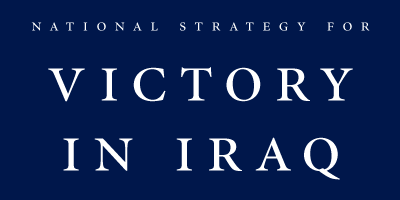Monday there was a big immigration-related rally here in Chicago. I decided that sounded both interesting (a lot of people) and annoying (a lot of people) so I came up with a plan: go check it out, but later, when things were relatively calm. (OK, this was less a conscious decision than a function of that fact that I don’t get up too early.)
Anyway, I went down to Grant Park around 3 and wandered around. I took my camera, and since I’m pretty conflicted about the whole immigration issue, I paid special attention to the signs.
Here’s what I saw.

The very first thing that caught my eye was this guy, walking along near Millennium Park. I’m really not sure what his deal was. He just strolled along the edges of the park, proudly holding this flag high. I won’t speculate on the symbolism.
Half a block from him was Mr. Jingle Bells (cropped to allow a hint of the gorgeous Pritzker Pavilion):

Again, draw your own conclusions about this message.
On the same corner:

Doesn’t Jesus love everybody? How does that help narrow it down?
I have to admit, by this time — just a few minutes in — I was feeling apprehensive. Was everything going to be this confusing?
I needn’t have worried. A few strides later and I happened across this fellow:

Here’s a message with some punch. Good contrast for the key words, with special bonus points for “forced.” He manages to evoke both the touchy-feely “melting pot” clichés as well as the flip side: slavery. The Bush/cronies line feels a little shrill, but is nominally on point, as it addresses security issues.
My only quibble is with syntax: they’re not “forced descendants”, they’re descendants of forced immigrants.
Here’s another guy with a similar message:

Here, the “this country is made up of immigrants” message is familiar, but I was totally drawn to the protester. What’s up with the mask? (More on that in a minute.) Also, check out the sign in the background: “We Are Workersing Not Criminals!” I saw a few others that read in this exact way; I don’t know if they were printed in that fashion or modified after the fact. Regardless, it’s a strange choice. Would you willingly hold a sign identifying yourself as a criminal?
Back to Mr. Mask. Here’s the front of his sign:

That’s certainly a more provocative message, but does it merit an attempt to disguise his identity? (Note also that this was actually written on top of another, milder message: “Look around you! What do you see? Immigrants!”) The whole mask thing really undercuts the message for me. It makes me think of CNN and firebombs and all sorts of unpleasant things. Not a wise choice.

This is much better. The choice of a chef’s hat is fun and evokes a skill, carrying with it a not-so-subtle reminder that many of these people are hard at work behind the scenes. The “We Love USA” message is similarly open and friendly.
This guy had the same idea:

It’s misspelled, but it’s sweet. I think this is particularly effective because it’s polite and slightly subservient. Couldn’t be more different than the masked man.
Nearby, I saw this gentleman:

He’s working a “we were here first” theme, which I’ll come back to later. For the moment, though, notice the discarded placard near his feet: “We Also Have a Dream!” This is an interesting approach, because it references the struggle (and legitimacy) of the American civil rights movement.
Other signs took the same approach, even invoking MLK:

But are immigration quotas really the same thing as Jim Crow laws?
Some others went a lot further back in time than the ’60s for inspiration:

I call this the “stolen”/”we were here first” theme:

As I see it, there are two major problems with this argument. First, you get into something of a reductio ad absurdum situation. Which governments stole, and which were legitimate? The Spanish? Aztec? Mixtec? Zapotec? Mayan? How far back do you want to go? It seems there are others with a claim:

Secondly, let’s be real here. Is this about living in Denver, or is it about making a living in the richest country in the world?

And on the subject of work, let me show you my pick for least effective sign of the day:

If you spend any amount of time reading up on immigration issues, you’re bound to hear that immigrants “do what Americans won’t” — and since many come from poorer companies (Mexico’s per-capita GDP is a quarter of the USA’s) they do it for cheap. Except: how are these not connected? Supply and demand is the most basic economic principle there is; just increase the pay and you’ll be surprised what Americans will do.
And so what if that makes some goods more expensive? In fact, just imagine the beneficial side effects of more expensive fast food! Or, for that matter, having to cut your own grass… After all, nobody ever said a cheap Big Mac is an inalienable right.
Oh, did I mention a “right”? I’m not the only one:

Typo aside, this sign was one example of the most common themes at the event: “rights”/”justice”/”fairness.” This included everything from speeches (“unfair treatment and unfair wages”, “fair and just immigration reform”) to Statue of Liberty iconography:

Closely linked was the concept of families:

(I saw a similar T-shirt depicting a family with one member missing, the word ‘Deportado’ over his/her outline.)
…and basic humanity:

Except I can’t help thinking that, while it’s indisputably true that “no human being is illegal,” so too is it true that there are illegal acts, with forseeable consequences. If a man sneaks across the border, later brings his family, then is discovered and sent back home, isn’t he ultimately responsible? (After all, by definition it’s impossible to deport citizens.)
Or, perhaps, after a certain amount of time America is his home, and the law should be changed to recognize that.

It’s a tough question.






























